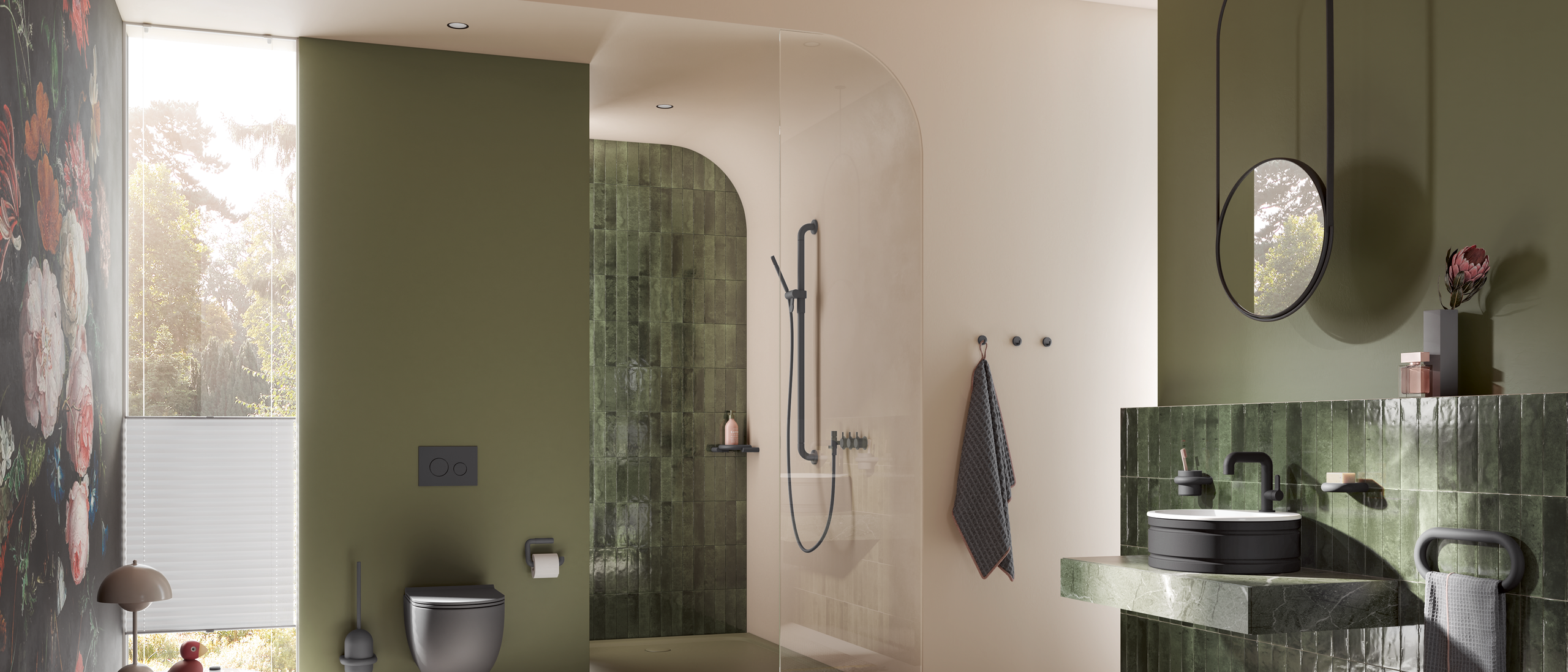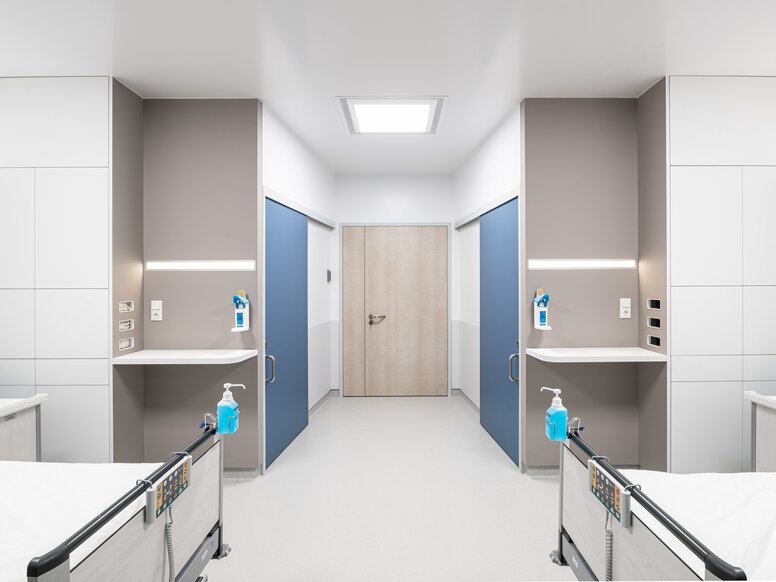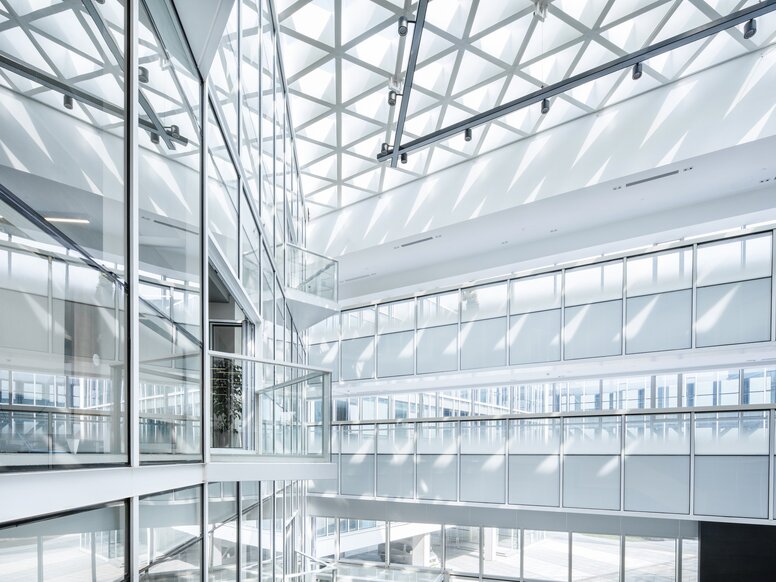HEWI MAG / SANITARY
Redesigning the bathroom: Design meets functionality
Redesigning a bathroom is a multifaceted process that goes far beyond mere aesthetics. The challenge for architects, planners, and fabricators often lies in reconciling the various needs of residents with budgets and design requirements. This article shows how redesigning a bathroom improves the quality of living and offers an opportunity to integrate state-of-the-art accessible solutions.
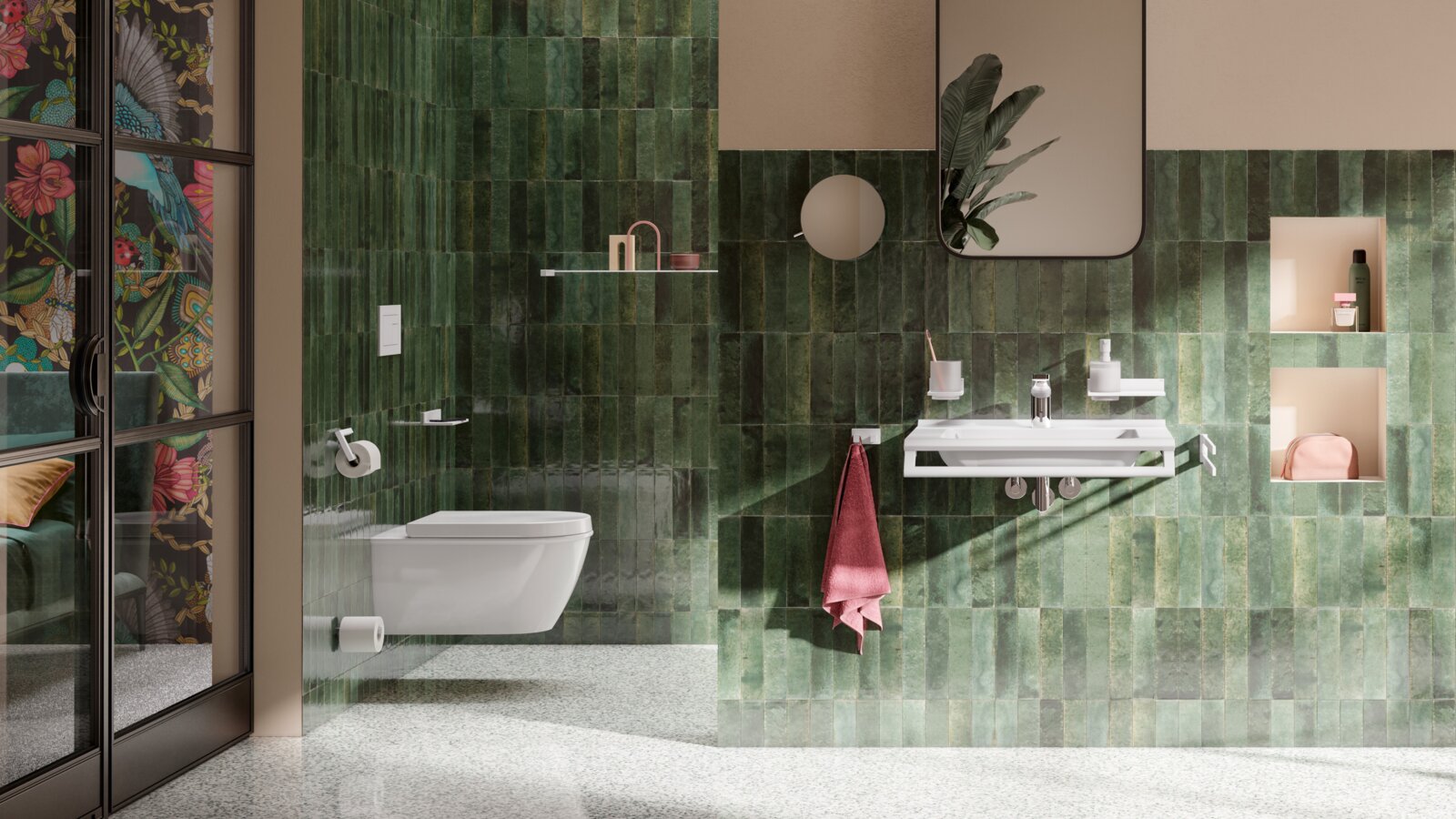
Needs analysis for individual perfection
The basis of every successful bathroom design is a comprehensive analysis of the needs and habits of bathroom users. Whether family bathrooms, parents’ and children’s bathrooms, or guest bathrooms – the requirements can vary considerably. Here are some tips on how you as planners, architects, and fabricators can tap into the individual usage requirements:
- Survey the occupants: Direct communication and a survey of future users provide valuable insights into their habits, preferences, and challenges.
- Consideration of life phases: From childhood to adolescence to old age – It should be possible to adapt a well-planned bathroom to different needs.
- Evaluating existing resources: A thorough review of the spatial conditions and structural requirements is essential. This includes not only the physical dimensions of the room but also the position of windows, doors, and supply shafts.
Accessible bathrooms
The issue of accessibility is becoming increasingly important in an aging society. But accessible bathrooms are not just aimed at the needs of people with limited mobility: They can be easily adapted to different phases of life and are therefore a benefit for all residents. It is therefore worth implementing accessible elements at an early stage if you want to redesign a bathroom.
- Future-oriented planning: Accessible elements such as height-adjustable toilets or sinks with wheelchair access ensure unrestricted access for all users and adaptability to different phases of life.
- Combining aesthetics and functionality: Accessible design can be aesthetically pleasing. The integration of elements such as level-access showers creates a modern and appealing bathroom.
- Maintaining value and quality of life: Accessible bathrooms increase the quality of life and maintain the value of the property because they can be used regardless of age or physical limitations.
- Universal design as a design principle: The concept of Universal Design goes beyond mere accessibility. The objective is to design products and environments in such a way that they can be used by as many people as possible in different life situations. Inclusivity and functionality go hand in hand.
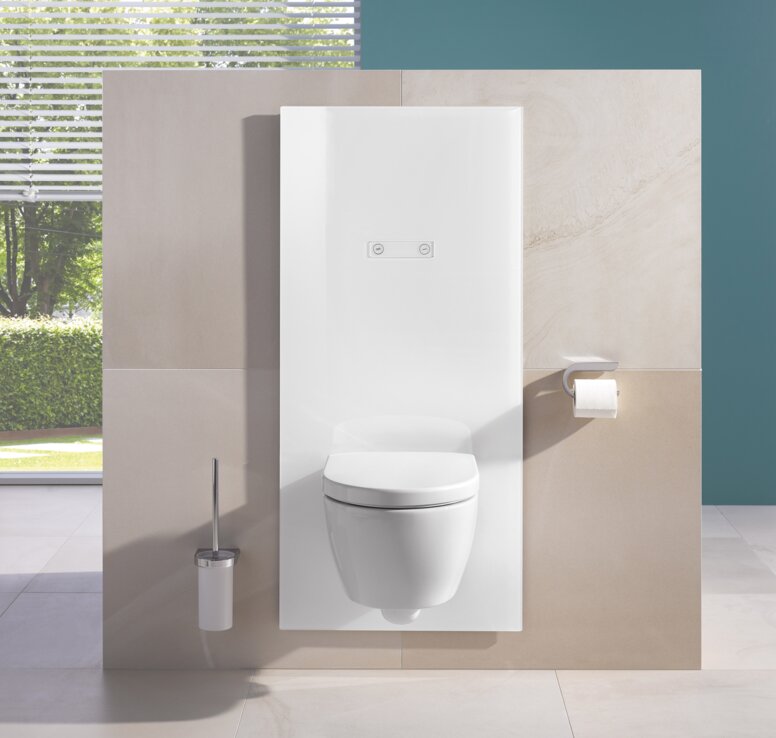
Energy efficiency for sustainable bathroom design
At a time when environmental awareness is growing, you can not only increase the comfort of your customers through sustainable design decisions but also actively contribute to environmental protection. So when designing a new bathroom, opt for energy-efficient solutions.
- LED lighting: Energy-saving LED lighting is durable and offers a wide range of design options. From relaxing warm white to activating cool white, LEDs can be adjusted as required in order to create different atmospheres.
- Water-saving fittings: Integrate faucets with water-saving technology in order to reduce water consumption. This is environmentally friendly and reduces energy costs for water heating.
- Intelligent heating systems: Use modern, programmable heating systems that optimize energy consumption. For example, underfloor heating systems can efficiently distribute heat throughout the room.
Budget planning and selection of high-quality products
Your expertise makes all the difference when it comes to redesigning a bathroom – help your customers make their dream bathroom a reality without losing sight of the budget. Here are three ways you can support your customers in this:
- Clear communication: Talk openly about the budget. Set realistic expectations and help identify the most important elements. Clear communication creates trust and enables smooth cooperation.
- Product selection with care: Use your expertise to recommend high-quality products that stay within budget. Consider not only the design but also the durability and functionality. The result is a bathroom that is beautiful and brings joy.
- Efficient use of space: Optimize the space available in order to get the most out of every budget. Clever floor plan design and the selection of space-saving yet high-quality products allow you to create a bathroom that is both functional and stylish. For you as an architect, planner, or fabricator, HEWI provides the free planning service.
Redesign your bathroom: Future prospects
Digitalization, hygiene, and sustainable growth will play an even more important role in the future. Universal Design is becoming the key to qualitative growth and a sustainable living environment.
- Digitalization and accessibility: Innovative technologies can be used to make rooms, especially bathrooms, easily accessible. Smart solutions make it easier to operate sanitary facilities.
- Hygiene and well-being: Increased hygiene awareness influences bathroom planning. Architects can create a healthy and comfortable bathroom environment by integrating hygienic materials and intelligent room concepts.
- Sustainable growth through design: Universal Design goes beyond functionality. It promotes social inclusion and sustainable growth by focusing on durability, energy efficiency, and environmentally friendly materials.
The symbiosis of design and functionality in the modern bathroom is no easy task but nevertheless one that professionals can master with creativity and expertise. Architects, planners, and fabricators play a crucial role in designing accessible and aesthetically pleasing bathrooms that meet the needs of residents while still being visually appealing and of high quality.

Support with bathroom redesign
For planners and architects, our free planning service offers support with bathroom redesign. We would be happy to help you renovate or plan a new bathroom. Contact us for further information and advice.
